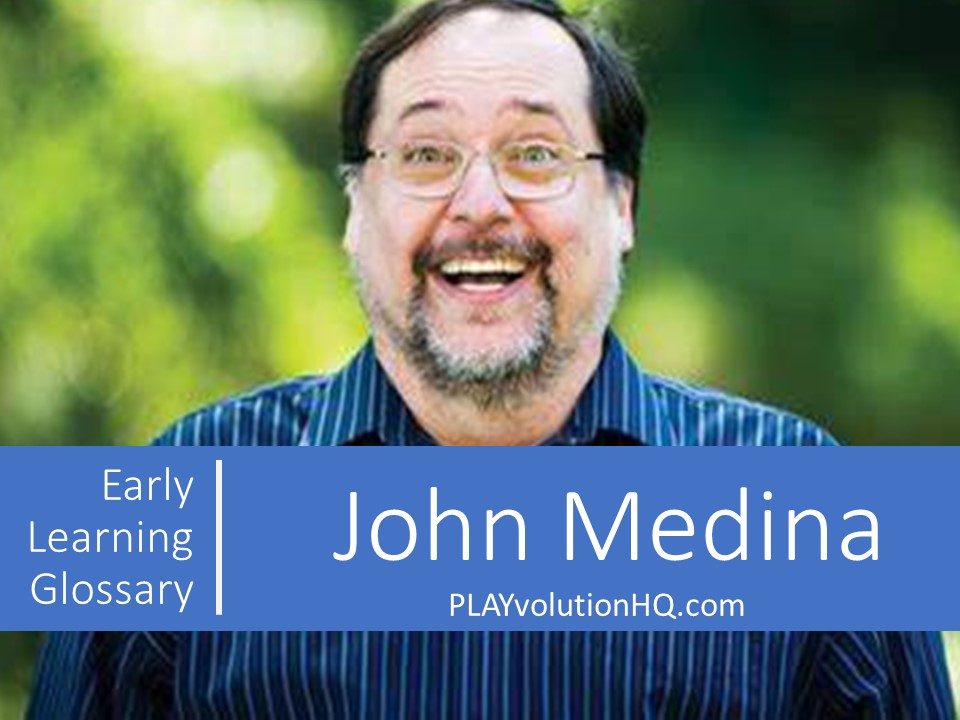
About John Medina
John Medina (born 1956) is an American developmental molecular biologist and educator whose work bridges the gap between neuroscience and everyday life. Renowned for his engaging approach to science communication, Medina has become a leading voice in applying brain research to education, parenting, and personal well-being. His interdisciplinary career reflects a deep commitment to understanding how the human brain develops and functions, with a particular focus on the genetic underpinnings of psychiatric disorders and the practical implications of neuroscience for learning and behavior.
John Medina’s academic journey began with a Ph.D. in molecular biology, followed by a career that blended research, teaching, and consulting. He has spent much of his professional life as a private research consultant in the biotechnology and pharmaceutical industries, where he explored the molecular mechanisms of mental health conditions. In the late 1990s, Medina founded the Talaris Research Institute in Seattle, a pioneering center dedicated to studying how infants process information at cognitive, cellular, and molecular levels.
This initiative underscored his belief that early brain development is key to unlocking human potential. Later, he transitioned to directing the Brain Center for Applied Learning Research at Seattle Pacific University, where he collaborated on innovative projects, such as designing brain-informed learning environments at Woodland Park Zoo. As an affiliate professor of bioengineering at the University of Washington School of Medicine, Medina has also influenced generations of students with his dynamic teaching, earning accolades such as Outstanding Faculty of the Year from the College of Engineering at the University of Washington.
Unlike traditional scientists focused solely on research, John Medina has devoted himself to translating complex scientific findings into accessible insights for the public. His bestselling book, Brain Rules: 12 Principles for Surviving and Thriving at Work, Home, and School (2008), distills decades of neuroscience research into actionable principles, challenging conventional approaches to education and workplace design. For instance, where traditional schools might emphasize sedentary lectures and rote memorization, John Medina advocates for movement, curiosity-driven exploration, and repetition grounded in how the brain naturally learns. He argues that multitasking is a myth, sleep is non-negotiable for cognitive health, and stress can cripple memory—ideas rooted in rigorous science yet presented with a storyteller’s flair.
Subsequent works like Brain Rules for Baby (2010) and Brain Rules for Aging Well (2017) extend this philosophy to parenting and lifelong vitality, reflecting his conviction that neuroscience should inform every stage of human development.
John Medina’s vision rejects the idea that brain science is an abstract discipline reserved for specialists. Instead, he sees it as a tool for empowerment, capable of reshaping how we teach children, design workplaces, and age gracefully. As a father of two sons, he brings a personal passion to his work, often speaking to educators, parents, business leaders, and policymakers about harnessing brain research for societal good. His approach is pragmatic and optimistic: by aligning our environments with the brain’s natural tendencies, Medina believes we can foster sharper minds, happier lives, and stronger communities. His contributions continue to resonate widely, making neuroscience not just a field of study but a blueprint for living well.
Additional Resources:
- The 12 Brain Rules
- Brain Rules for Baby
- Brain Rules videos from Medina’s official site
- Video of Medina speaking at Google
Contribute content to Playvolution HQ
Brought to you by Explorations Early Learning
Thoughts On This Entry?
I’d love to hear your thoughts on improving this entry and suggestions for additional glossary additions in the comments below. You can also contact me with comments or concerns.
Browse Trainings
Author
Josie is an early childhood educator turned children’s librarian from Kansas City, MO. When she’s not promoting play and early literacy, she loves to spend time with her family and travel. During her rare moments of free time, you can find Josie curled up with a cat and a good book. Feel free to reach out to her with early literacy questions or ask for book recommendations.
In-Person And Online Training
Learn how to book an in-person or online training for your organization on these early learning topics.
Support The Site
I participate in the Amazon Services LLC Associates Program, an affiliate advertising program designed to provide a means for me to earn fees
by linking to Amazon.com and affiliate sites.
Thanks To Our Patrons
This post was made possible by patrons like these, who generously fund our work:
Supporters
Lissadell Greene Stephanie Goloway Jennifer Stark
Lagina Kozak Michelle Hankins
Marie Messinger Tamara L. Lakin
Fans
Jen Flemming Lizz Nolasco Cynthia J Bays
Susan Warner Kelly Sigalove Shawn Wolf
Vittoria Jimerson Codee Gilbert Wendy Tedford
Monica Morrell Pam Soloman Melissa Franklin
Teresa Watson Erika Felt Autumn Peele
Melissa Taylor Jahmeela Robinson Stacie Manning
Amber Maurina Terra Calamari Anne Jackson
Lagina Kozak Samantha Yeager-Cheevers
Elizebeth McCoy Sammy Cousens Ellen Cogan



Leave a Reply